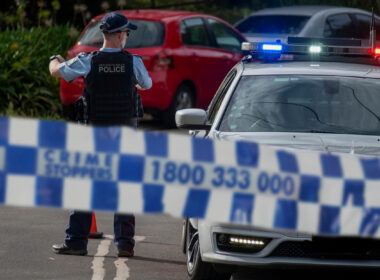This [scheme] is an opportunity to help people go into relationships with their eyes wide open
If re-elected, the NSW Liberal and Nationals Government has committed to implementing a new scheme that allows people to find out if their partner has a history of domestic violence offences.
The Right To Ask scheme would allow NSW police to disclose information to a person over the phone or through an online portal about their partner’s prior domestic or violence offences. Strict privacy controls would operate, and criminal penalties would apply for malicious applications. The service would be offered in multiple languages and facilitate referral to domestic violence support services where necessary.
NSW Premier Dominic Perrottet said the scheme was modelled on Clare’s Law in the UK and empowers people at risk to make decisions based on that information.
Clare’s Law is named after Clare Wood, a woman from Yorkshire who was murdered in 2009 by her former partner, a man who police knew to be violent.
“There are simply too many heartbreaking stories of women and men being seriously hurt or murdered in circumstances where the perpetrators had a history of prior domestic and violent criminal offences that they didn’t know about,” said Perrottet.
“None of us want to see a loved one scarred by domestic violence and wishing they’d known their partner’s history sooner,” he said.
Paul Toole, NSW Deputy Premier and Minister for Police, said that technology and the use of dating apps has significantly changed the “landscape” of dating.
“More people [are] accessing dating apps and dating outside known friendship circles,” said Toole.
“This [scheme] is an opportunity to help people go into relationships with their eyes wide open.
“It will allow them to make more informed decisions about continuing a relationship, moving in with someone or making them a part of their family, particularly where children are involved.”
 Paul Toole
Paul Toole
In 2016, a similar initiative called the Domestic Violence Disclosure Scheme (DVDS) was trialled in NSW. The pilot scheme had very small uptake and was criticised due to its high costs and limited operation.
After a two-and-a-half-year trial, the government released a report stating, “There is in principle support for the DVDS in the service community, but this has not translated into significant demand for the scheme to date”.
The Right To Ask Scheme will avoid some of these issues by having a wider application across NSW and including domestic and violence offences, not just convictions. The proposed scheme is part of a series of commitments made by the Coalition and Labor party in the lead up to the NSW state election in March 2023.
NSW Labor has committed to spending $100 million on specialised women’s health centres to ensure women have access domestic, family, and sexual violence support as well as physical and mental health services. NSW Labor leader Chris Minns said that many women’s health centres would be forced to shut or operate at a reduced level without further investment.
“Women’s Health Centres have a 40-year history in delivering vital evidence-based primary health care services [but] core funding has not kept up with the ever-increasing demand and this is placing more pressure on our already struggling hospital system,” said Minns.
The Coalition has promised to invest $20 million into expanding the use of electronic monitoring for domestic violence offenders across NSW. Perrottet said that electronic monitoring provides “an extra layer of protection” for victim-survivors of domestic violence as well as their family.
“This extra investment will enhance our ability to provide this protection, ensuring the movements of more offenders are closely monitored to help keep victim-survivors of domestic violence safe and out of harm’s way,” said Perrottet.




